Disclaimer: The following article has been revised to ensure the safety and security of the campus community. The Montclarion is committed to maintaining its journalistic integrity while also minimizing harm.
Montclair State University’s Hillel chapter and Students for Justice in Palestine (SJP) called for justice and peace this past week by hosting various events on campus to express anger and sadness over what is happening in Israel and Gaza.
On Oct. 7, Hamas, the terror group that governs Gaza, conducted an attack on southern Israel, murdering more than 1,000 Israelis, including those who attended a music festival and families in their own homes. They also kidnapped over 200 hostages.
As a result, Israel alerted Gazans to evacuate. On Tuesday, an explosion at a hospital in Gaza killed more than 500 civilians. Hamas blamed Israel for an airstrike, while Israel blamed Hamas for misfiring a rocket. Biden arrived in Israel on Wednesday to discuss the ongoing situation.
Montclair State President Jonathan Koppell expressed his support in an email on Oct. 11 shared to the campus community.
“In the face of this litany of suffering, I hope we do not lose our humanity or forget our agency, our power to be there for each other, those who are threatened right here or feel grief at the agony of others,” Koppell said, “and to contribute to solutions to seemingly intractable problems.”
The Montclair State Hillel chapter hosted a vigil at the Student Center Quad on Oct. 9 for the current war and for those who lost their lives. Montclair State Hillel president Aliza Rhein said the vigil went into details of the war and the issues arising within the recent Hamas attacks.
“We mourned and prayed for the innocent lives lost, the destruction of worlds and the chaos Hamas is creating,” Rhein said.
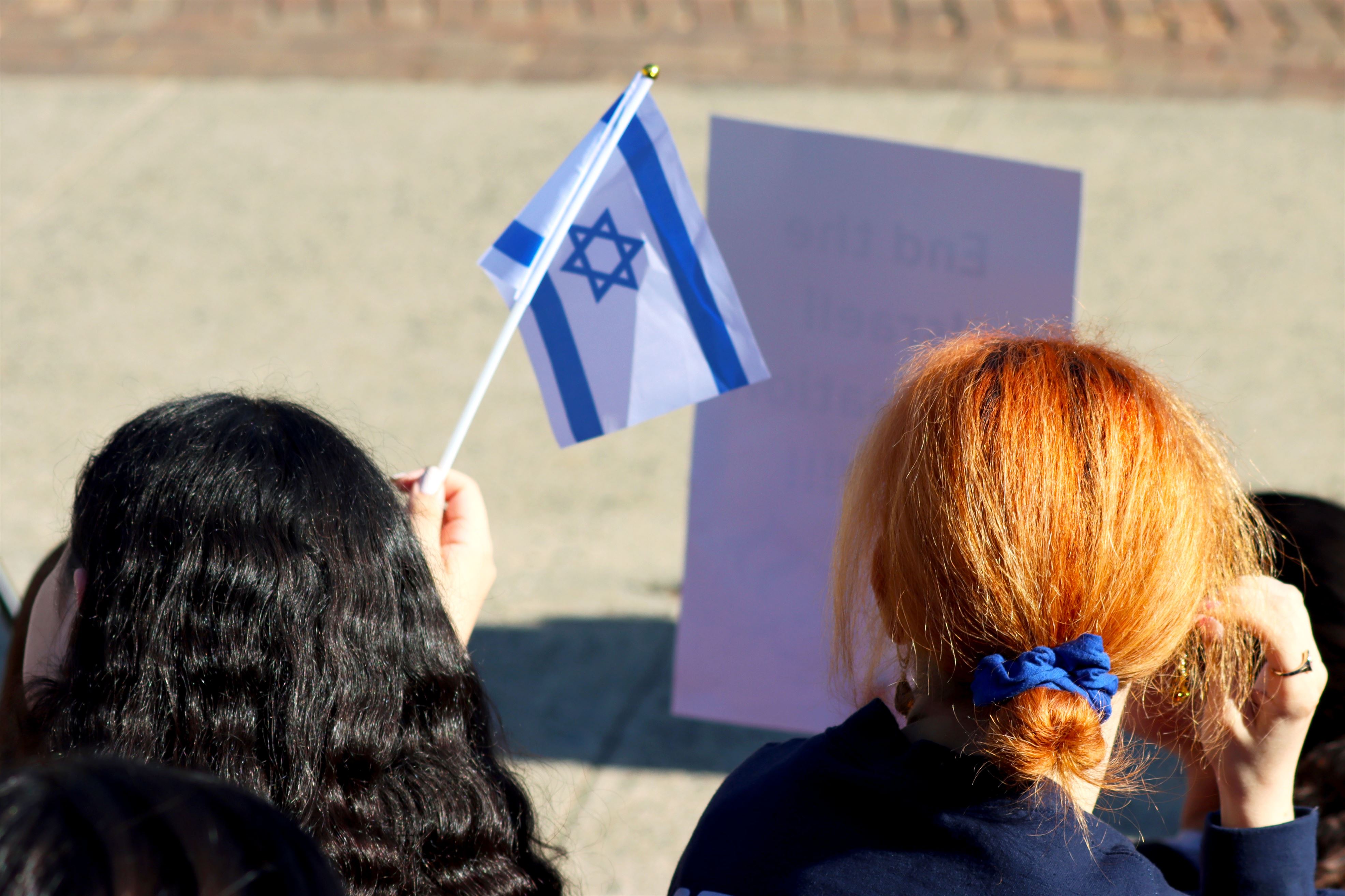
Students wave the Israel flag outside the Student Center quad at Montclair State University. Claudia Martillo | The Montclarion
Phoebe Ellman, student engagement associate for Montclair State Hillel, said that they tried to light candles in the wind and said a prayer titled the Mourners Kaddish, which is said in Jewish tradition to mourn the dead.
Around 30 people both Jewish and non-Jewish attended the vigil. Ellman said most of the people had friends and family who lived in Israel and some students were Israeli. Ellman said most of the members families were safe, but dealing with the stress of the terror attack. Jewish-American students were also expressing their fears about what this meant for antisemitism in America.
“So yeah it was a [safe] space, everyone was somber, definitely very emotional, a lot of hugs and kind of solidarity showed but it was also a really nice space,” Ellman said. “I think for all students and the few professors who seem to feel like you know, that they were able to join in community together and just know that there were people that had their back.”
On Thursday, Oct. 12, a rally hosted by SJP included words from multiple speakers. Students brought Palestinian flags to wave, wore Palestinian keffiyehs and said chants such as “Biden, Biden you will see, Palestine will be free. Free free Palestine. Long live Palestine. Palestine will never die. Free, Free Palestine. Free, Free Palestine.”
Many students carried posters with messages that read “They said the old will die and the young will forget, but this isn’t over yet” and “Stop the daily killing of Palestinians in the occupied territories.”
Adjunct political science and law professor Hossein Hafezian said the tension between Israel and Palestinians began in 1948 after the establishment of Israel. He said how in 1993, the Palestinian Autonomous Authority was established and sought a two state solution.
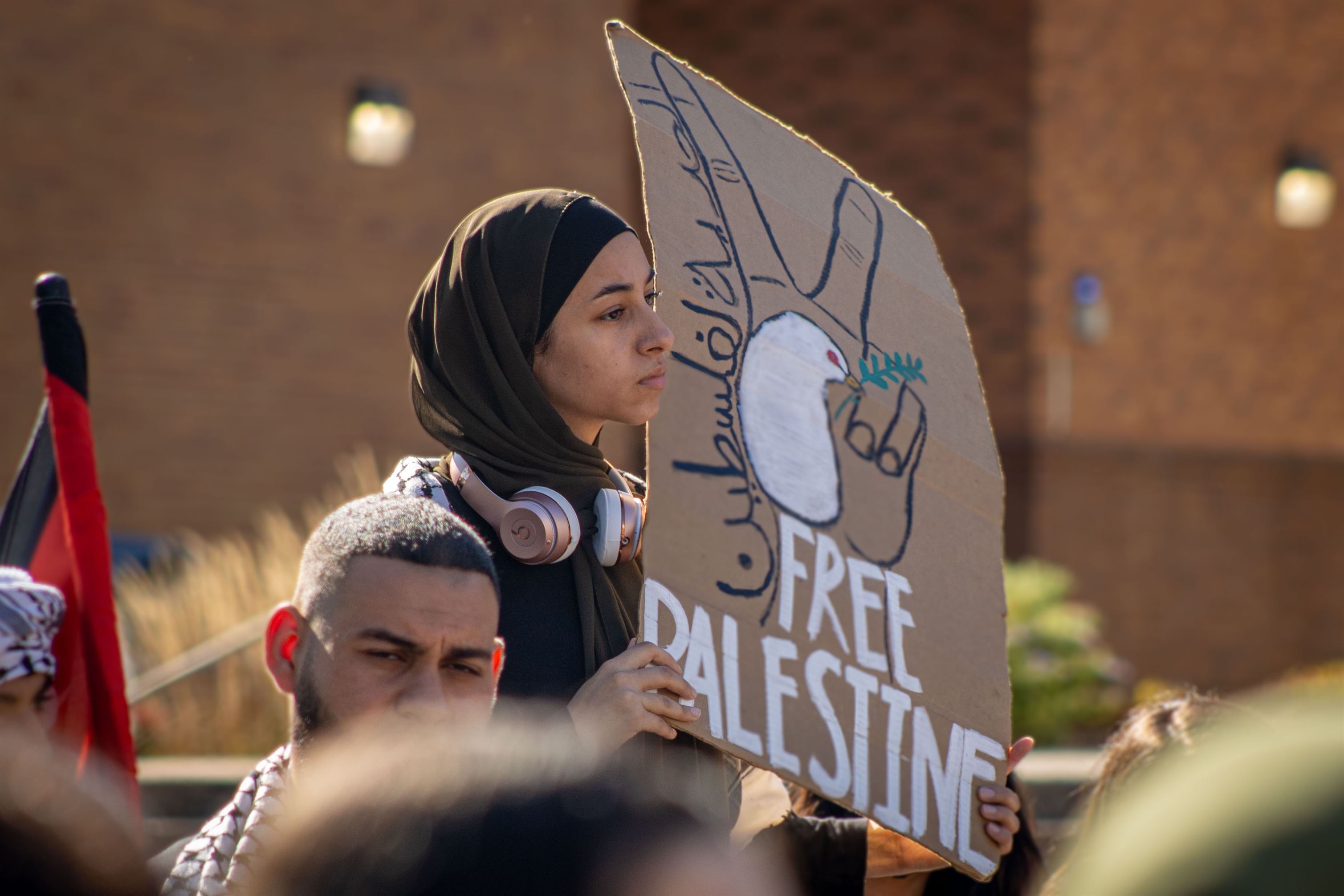
Someone holds up a poster that reads "Free Palestine," while protesting. Dani Mazariegos | The Montclarion
In 2005, Israel withdrew from the Gaza Strip, Hafezian said. A year later Hamas won the parliamentary elections in Gaza and in 2007 took over the Gaza Strip, he said. Palestinians now live in Hamas control Gaza and the PA-controlled West Bank. He said they occasionally attacked Israel with rockets, which would lead to retaliation by the Israel Defense Forces (IDF), leaving many civilians on both sides dead or injured.
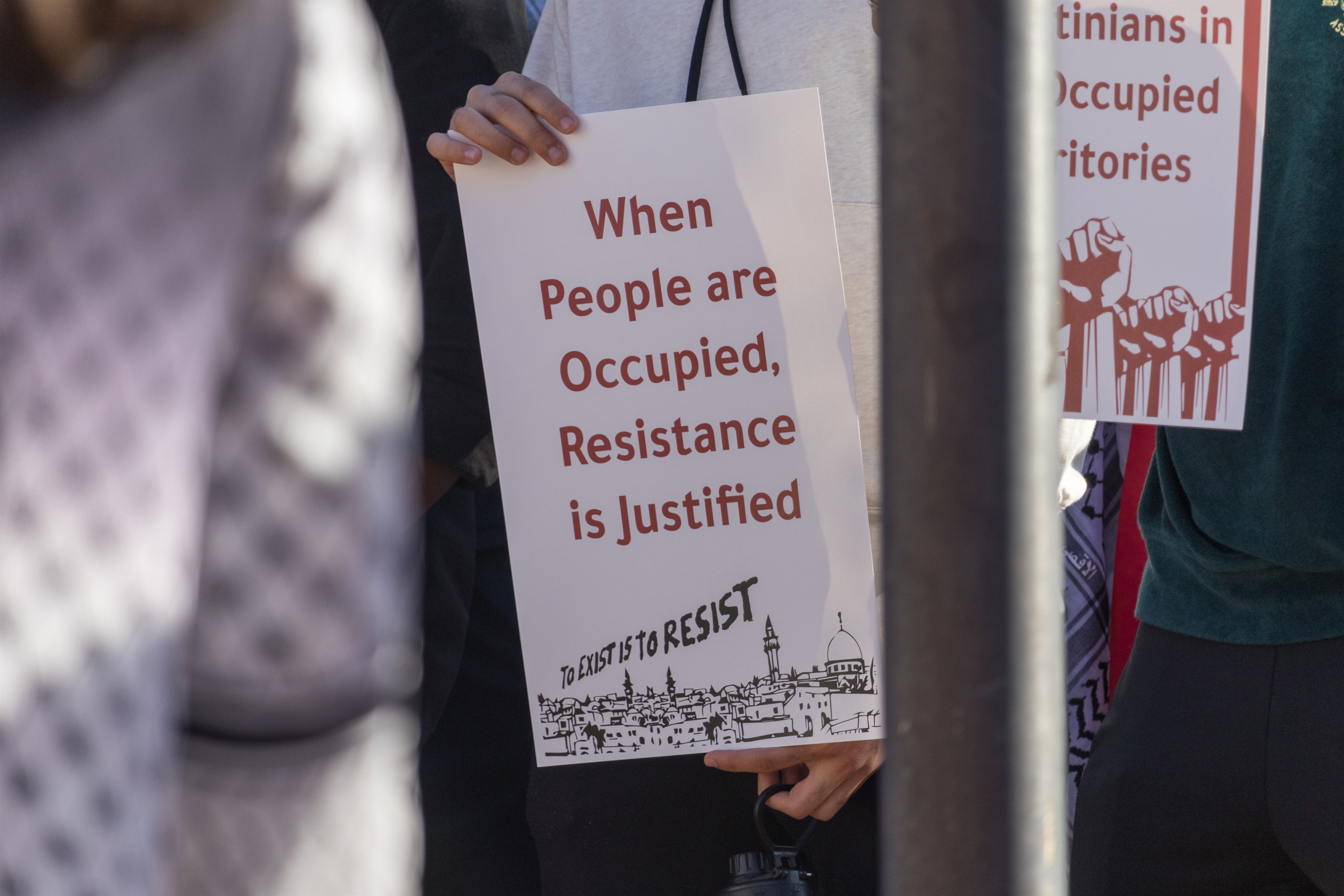
A sign reads "When People are Occupied, Resistance is Justified" at a pro-Palestine rally in the Student Center Quad.
Sal DiMaggio | The Montclarion
A student who requested to remain anonymous was moved to tears by the words shared by the speakers at the SJP rally.
Aeshna Sierra War Huff, a visual arts major, attended the rally with her Muslim friend to offer her support.
“I came here to support a friend, it was a really good turnout and I think they said some very powerful words. This one guy who kept reading articles and they were very powerful and very tearful.”
The student who requested to remain anonymous identifies as Muslim and Pakistani and has gone to multiple rallies. “This was very liberating, especially knowing that [SJP] is hosting this, a bunch of Montclair [State] students are doing this was very liberating. Very peaceful and very loud but in a good way.”
They believed that this rally was a way to bring people together to show their support.
“This really helps portray the positive media of Palestine and not the negative,” Anonymous said. “Everyone coming together as a community as Muslims as well is very nice.”
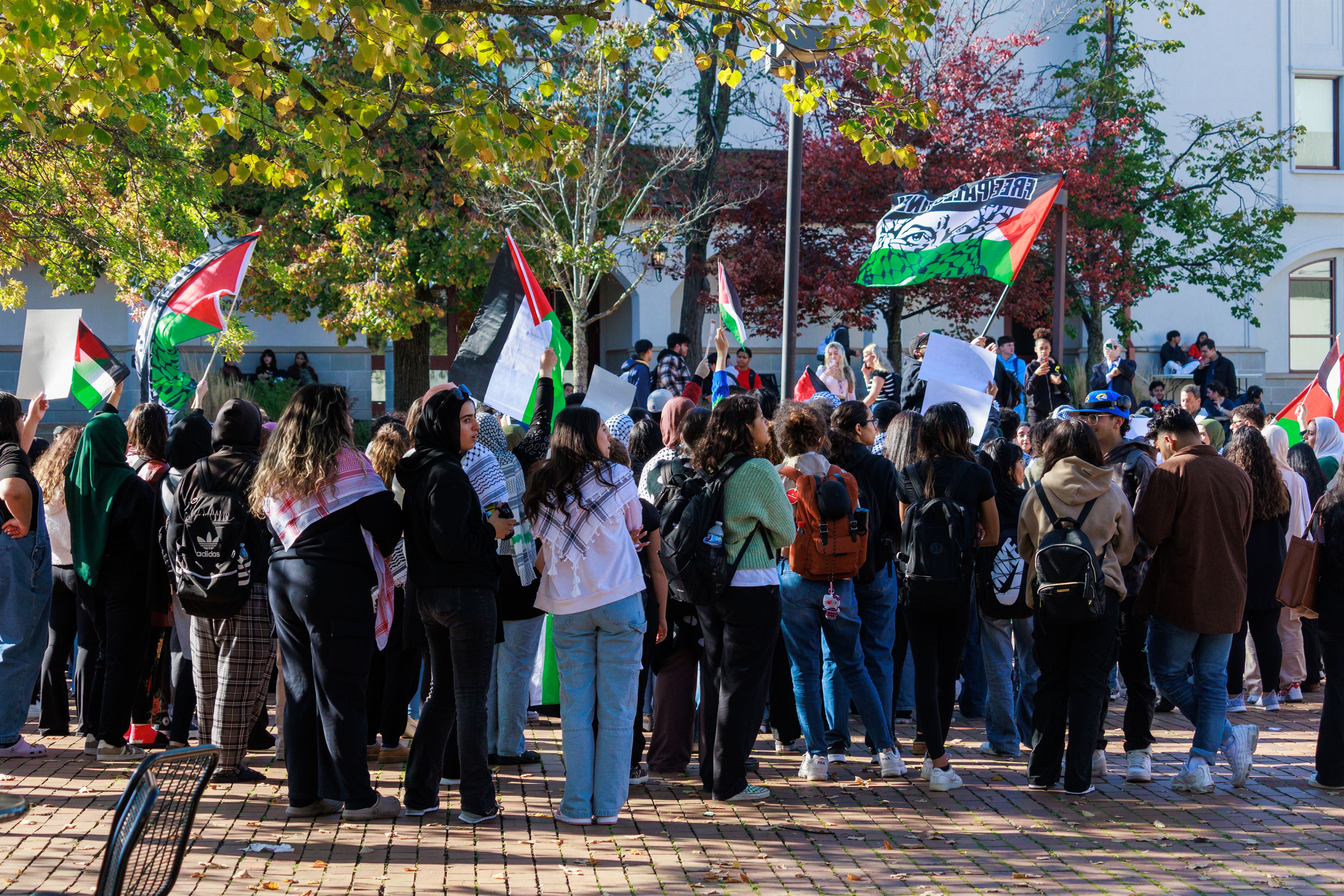
Students gathered in the Student Center Quad on Oct.12, 2023 for a pro-Palestinian protest.
Sal DiMaggio | The Montclarion
Jaime Grinberg, professor of educational foundations, who lived in Israel for some time and received his undergraduate degree from The Hebrew University of Jerusalem, Israel, expressed his feelings regarding the war and how it impacts the campus community.
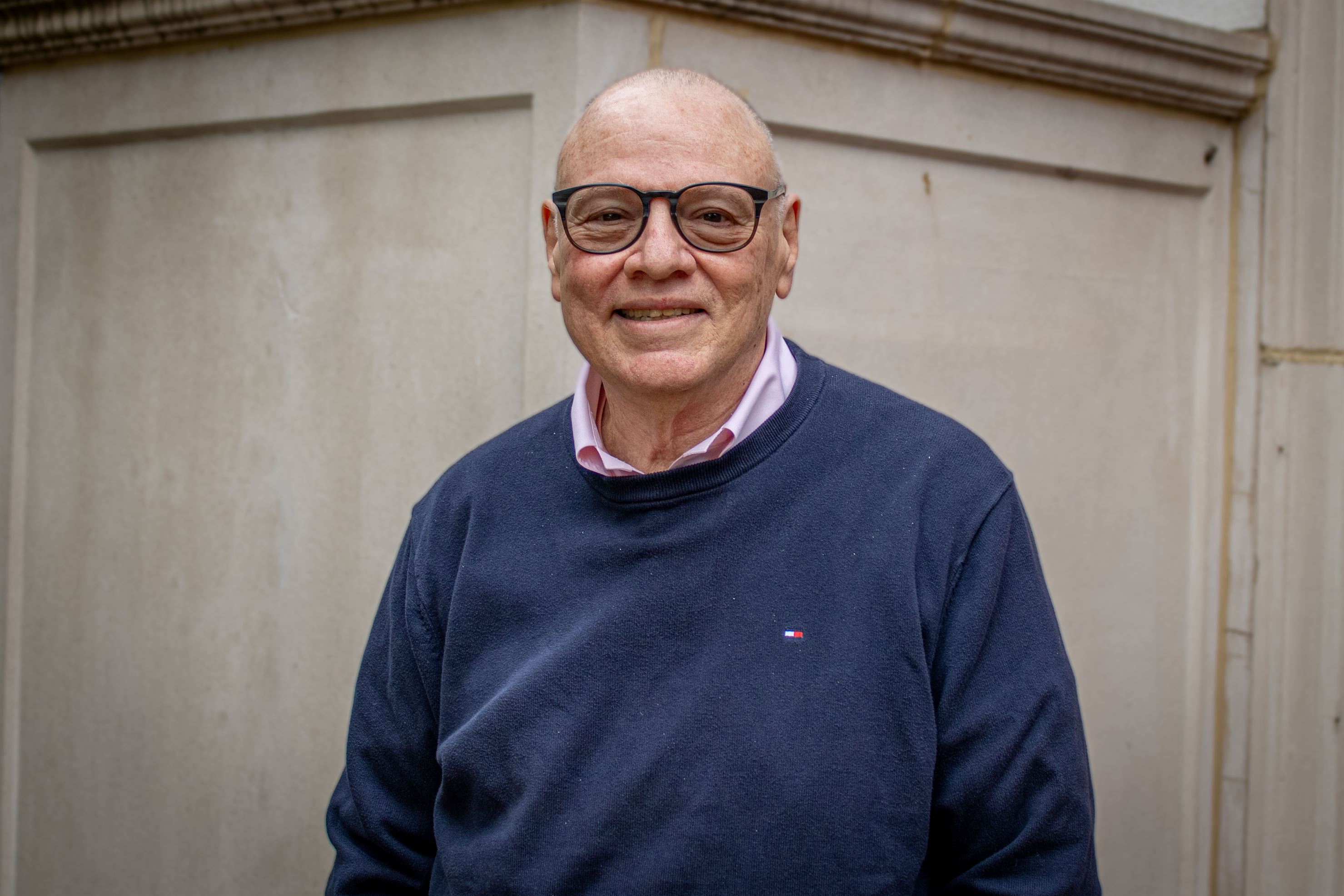
Jaime Grinberg, professor of educational foundations, received his Ph.D. from Michigan State University and his undergraduate degree is from The Hebrew University of Jerusalem. Dani Mazariegos | The Montclarion
“So this is a monster we’re facing,” Grinberg said. “It breaks my heart. Now, my concern here on campus is that presently is a lot of anger. But this anger has transformed into intimidation and fear.”
Hafezian explained how he thinks protests are not ideal for either side and don’t have an impact.
“On the Palestinian side, Hamas is an extremist group, which rejects the peace process, believing that all Jews should leave Israel and the entire territory belongs to Palestinians,” he said. “On the Israeli side, there is an extremist government now in power led by Netanyahu, which does not believe in the peace process and that no independent Palestinian state should be created. Under such circumstances, when both sides are extremists, do not wish to compromise, and do not show much respect for humanitarian international law, such protests will not change anything.”
Hafezian said, “Under such circumstances, when both sides are extremists, do not wish to compromise and do not show much respect for humanitarian international law, such protests will not change anything.”



